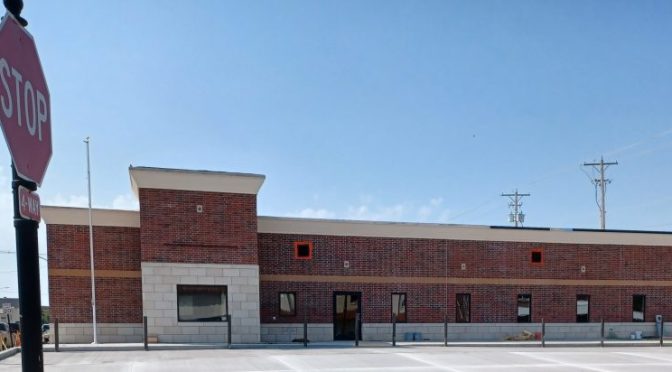Governor Kelly Announces $10.7M to Expand Internet Access to Devices and Public Wi-Fi
TOPEKA — Governor Laura Kelly announced Tuesday that applications will open Thursday, Dec. 12, for a second round of the Advancing Digital Opportunities to Promote Technology (ADOPT) program. The program will provide $10.7 million to organizations working to expand access to public wi-fi and connected devices.
“Our digital opportunity programs empower Kansans to reach their full potential in work, education, and entrepreneurship,” Governor Laura Kelly said. “The ADOPT program provides resources for communities to thrive in a digitally connected economy.”
ADOPT is built around two key categories:
- Equipment Distribution: the maximum individual award is $500,000 and requires 2% match and 1% co-investment
- Public Wi-Fi: the maximum individual award is capped at $1 million and requires 5% match and 2% co-investment
“The ADOPT program has an immediate impact on Kansans. We are able to remove technological barriers and provide tools necessary to navigate today’s digital environment,” Lieutenant Governor and Secretary of Commerce David Toland said. “Through access to devices and public wi-fi, individuals can enhance job skills, participate in telehealth appointments, engage in online learning, and do remote work, furthering their ability to succeed in the future economy.”
The Kansas Office of Broadband Division (KOBD) continues to partner with entities that can procure, distribute, manage, and maintain devices for the Equipment Distribution component of the program. The devices will be provided to individuals who cannot connect to the internet. The program emphasizes long-term loans for computers, laptops, and tablets to ensure sustainable access for qualifying individuals.
The Public Wi-Fi component encourages organizations to form partnerships to deliver solutions in underserved and unserved public spaces, bringing affordable and reliable internet services to areas that lack access.
“KOBD continues to engage with our neighbors while being future-focused on our mission to ensure all Kansans can access digital tools needed to thrive,” Interim Director of Kansas Office of Broadband Development Joseph Le said. “We have been encouraged by the innovative ideas and partnerships developed in the first round of ADOPT, and we expect this second round to continue to propel Kansas forward.”
KOBD encourages local governments, community organizations, educational institutions, and other organizations to continue collaborating and enhancing Kansas communities through ADOPT. To learn more about the program guidelines and entities eligible to apply, click here.
KOBD will host a webinar at 11 a.m. Wednesday, Dec. 11, to discuss funding priorities and application guidelines. To register, click here.
###


